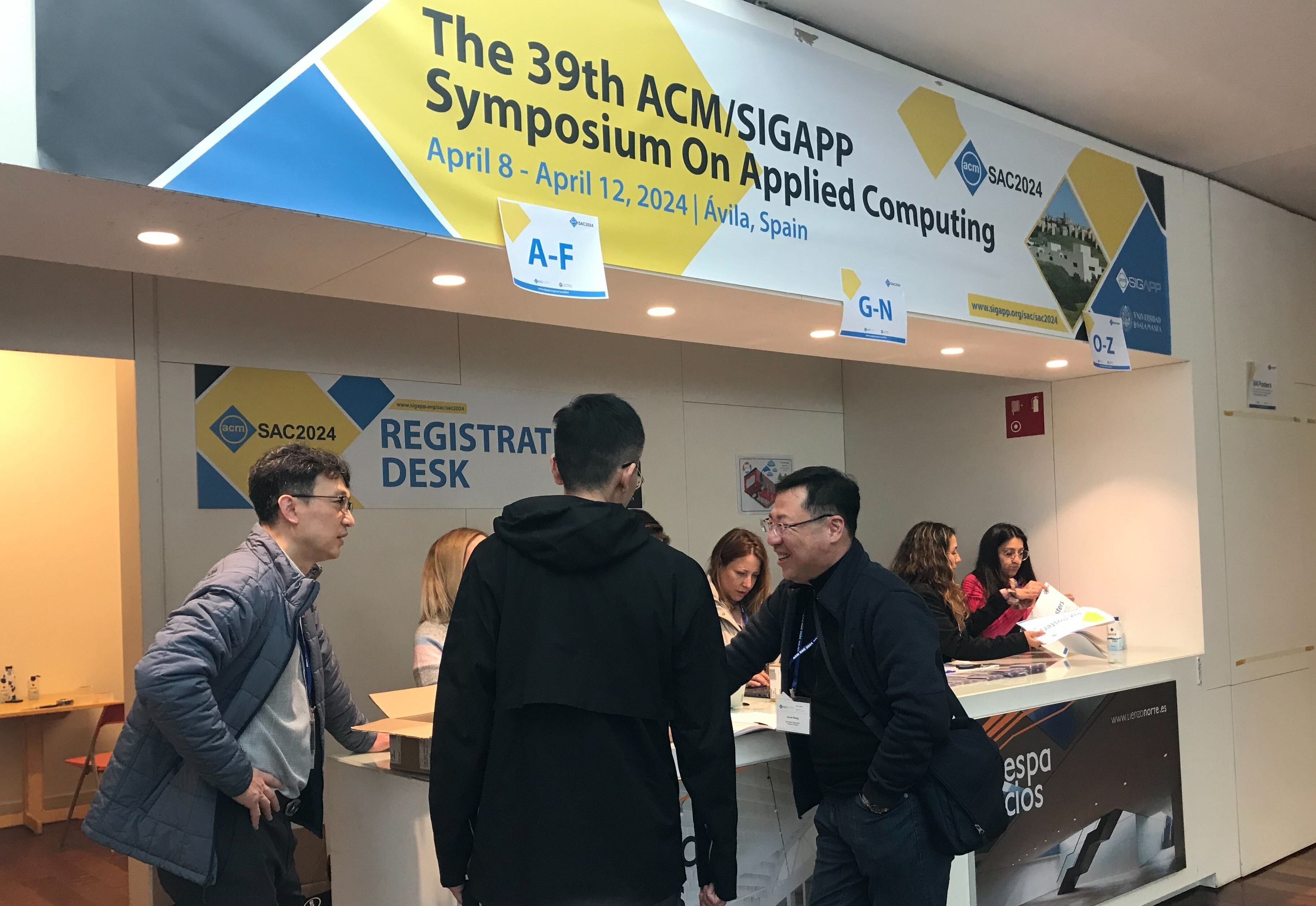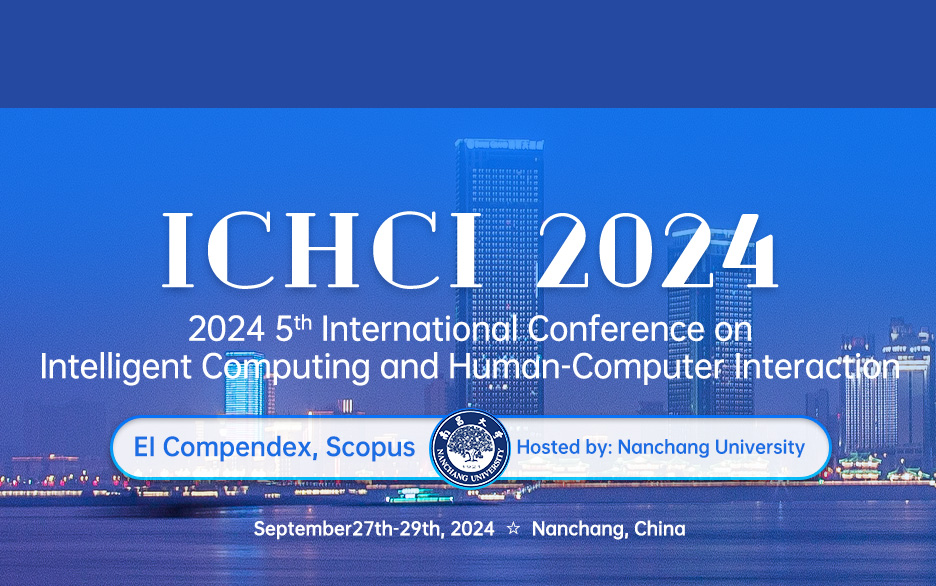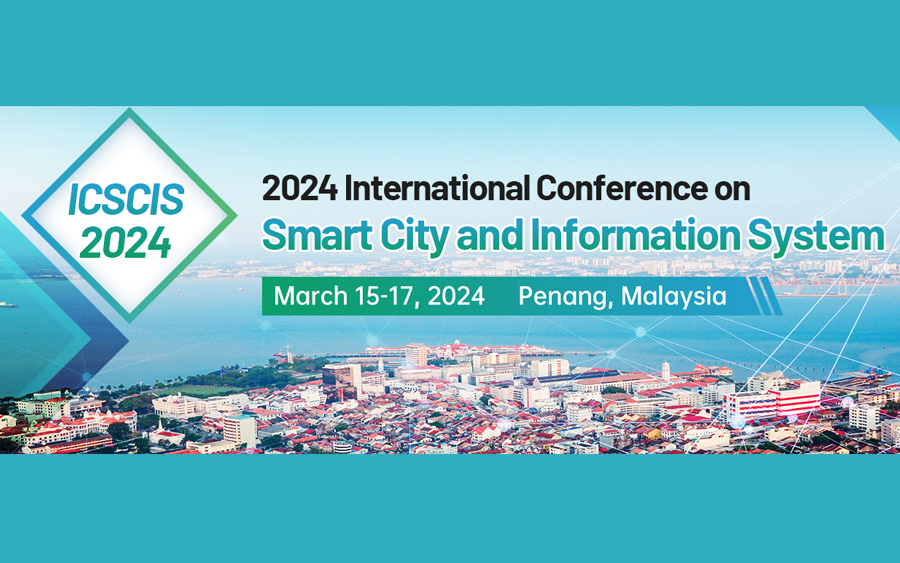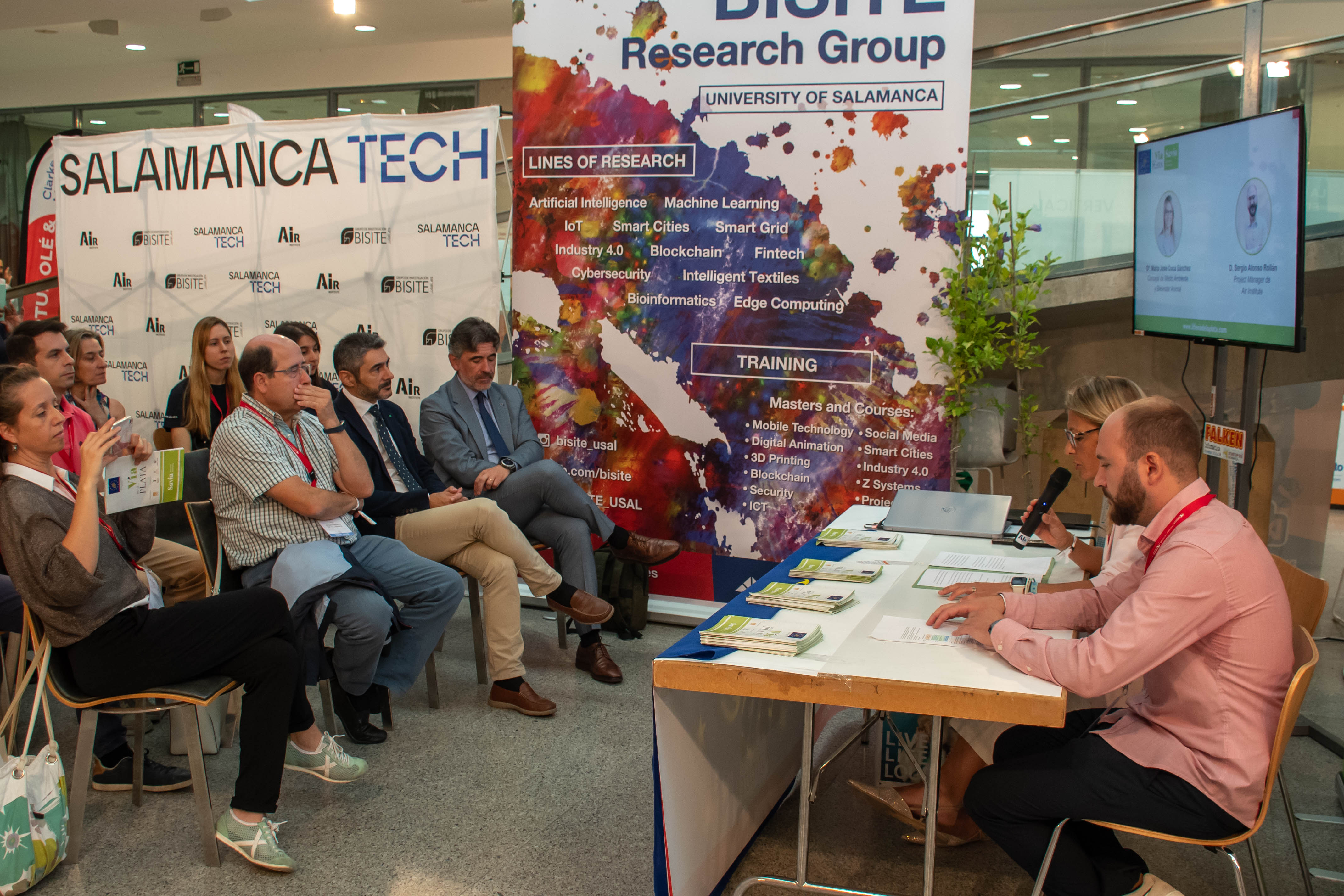72 security specialists from all over the world participated in a seminar on radar technology held at the University of Salamanca. The meeting was organized by the BISITE group in collaboration with the Ministry of Defense and forms part of an international program under S&TO (a subsidiary body of NATO in charge of R&D) to promote the exchange of information and the development of collaborative projects in the area of security.
Attendees of the seminar shared knowledge about SAR radar technology, also known as “telescopic radar” and designed for use in high flying airplanes. These radars emit many signals with different wave lengths, allowing them to obtain very precise information about the target area. With the aim of improving and developing the technology, experts analyzed aspects such as tracking and management, the use of active and passive sensors, and data fusion, among others.
During the presentation of the seminar, BISITE director Juan Manuel Corchado highlighted the importance of research applied to the field of security, in which various groups throughout Spain are currently involved. He also noted that much of the development that emerges from this type of activity can lead to applications that extend beyond the scope of the military, using improvements in air traffic control systems as an example.
International coordinator Matthias Weiß from Germany underscored the importance of information sharing to promote advancement in this type of technology, noting the work of researchers in new teams that incorporate temperature as an additional variable to manage radar systems.
The seminar on NATO radars is one of its most renowned annual events, and the second of its kind hosted by a Spanish university. In this case, the meeting served as a preamble to the Fusion Conference 2014, which will be held at the University of Salamanca from 7-10 July. Approximately five hundred international experts in information fusion will attend the conference, an information technology research area in its development stage. The results of this research allow the increase and management of large volumes of complex data for their use in the coordination of large scale information networks.
Indeed, the BISITE research group has developed various research projects applied to the area of security and in which data fusion plays a critical role. One such case is their current research on cybersecurity, funded by the Ministry of Industry, Energy and Tourism. As explained by Juan Manuel Corchado, this project “is focused on the development of tools that can identify online crimes in social networks, understand how crimes are related within a geographical and temporal context, identify the different members or collaborators in different criminal groups, and understand how they are connected in social networks and the internet in general”.








